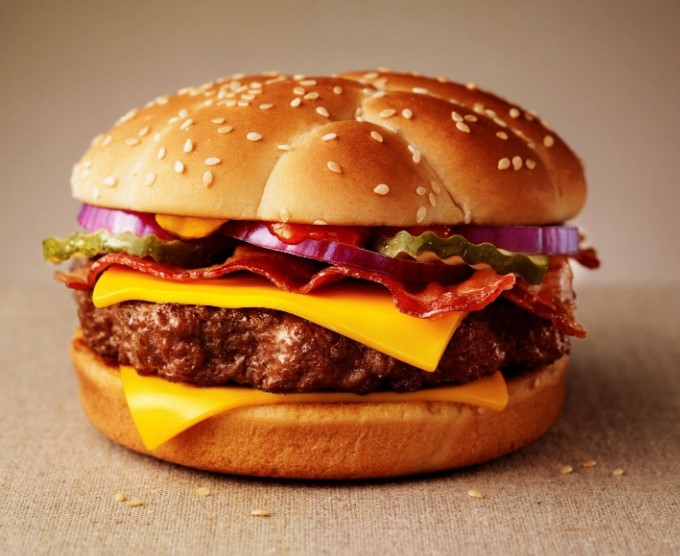Can Cats Eat Hamburger?
As a responsible cat owner, you’ve likely wondered about sharing some of your food with your feline friend. If you’ve found yourself asking, Can cats eat hamburger?, you’re not alone. This guide explores whether hamburger meat is safe for cats, how to prepare it properly, and the potential risks involved. Follow Cat Memorial Stones !!
Can Cats Eat Hamburger Meat?

Yes, cats can eat hamburger meat, but it must be plain, fully cooked, and given in moderation. Cats are obligate carnivores, meaning their diet needs to be predominantly meat-based. Hamburger, when prepared correctly, can provide a good source of protein. However, there are certain precautions you need to take to ensure it’s safe for your pet.
Benefits of Hamburger for Cats:
- High in Protein: Cats need protein to maintain muscle mass, skin, and fur health.
- Rich in Amino Acids: Hamburger meat contains taurine, an essential amino acid that cats require for heart and eye health.
- Nutrient Source: Ground beef offers essential vitamins and minerals like iron and B vitamins, which contribute to a balanced diet.
How to Safely Prepare Hamburger for Cats
If you’re considering feeding hamburger to your cat, preparation is key. Here’s how to make hamburger safe for your feline:
- Plain and Unseasoned: Avoid using salt, pepper, onions, garlic, or any other seasonings that are toxic to cats. Ingredients like garlic and onions can cause severe health problems, including anemia.
- Fully Cooked: Never serve your cat raw or undercooked hamburger meat. Raw meat can contain harmful bacteria like Salmonella and E. coli, which may lead to food poisoning. Cook the hamburger thoroughly until no pink remains.
- Low-Fat: Cats don’t need as much fat as dogs or humans. Opt for lean ground beef (90% or higher) to avoid excessive fat intake, which can lead to obesity and digestive issues.
- Moderation: While hamburger can be a protein-rich snack, it should never replace your cat’s regular diet of nutritionally balanced cat food. Overfeeding hamburger may lead to an imbalance in nutrients, causing long-term health issues.
Potential Risks of Feeding Hamburger to Cats

Even though hamburger meat can be a healthy treat when prepared properly, there are some risks to consider:
- Toxic Additives: If the meat contains onions, garlic, or other seasonings, it becomes dangerous for cats. Even a small amount of these additives can harm your pet.
- High Fat Content: Fatty cuts of beef or overconsumption of hamburger may result in pancreatitis (inflammation of the pancreas), weight gain, and digestive problems.
- Choking Hazard: Make sure the hamburger is finely chopped into small pieces to prevent choking, especially for kittens or older cats with dental issues.
Can Cats Eat Raw Hamburger?
While some pet owners advocate for raw food diets, feeding raw hamburger meat to cats is not recommended. Raw meat can harbor harmful bacteria like Salmonella and Listeria, which pose risks not only to your cat but also to you and your household. In addition, raw diets must be nutritionally balanced, which is hard to achieve with just plain hamburger meat.
>>> Read: Can cats eat cheese?
What About Hamburger Patties and Fast Food?
Cats should not eat hamburger patties from fast food restaurants or homemade hamburgers meant for human consumption. These often contain harmful additives like salt, spices, and fillers such as onions and garlic. Processed meats also have high levels of sodium and preservatives, which are harmful to a cat’s health.
Can cats eat mcdonald’s burgers?

No, cats should not eat McDonald’s burgers.
While cats might find the smell of a burger tempting, their digestive systems are not designed to process human food, especially fast food. Here’s why:
- High fat content: Burgers are typically high in fat, which can lead to obesity, pancreatitis, and other health problems in cats.
- Salt: The high salt content in burgers can be harmful to a cat’s kidneys.
- Onion and garlic: These ingredients, often found in burgers, are toxic to cats.
- Spices: Many spices used in burgers can also be harmful to cats.
Stick to a high-quality cat food that is specifically formulated to meet your cat’s nutritional needs. If you’re unsure about what to feed your cat, consult with a veterinarian.
Can cats eat burger buns?
While cats can technically eat burger buns, it’s not recommended.
Here’s why:
- No nutritional value: Burger buns are primarily carbohydrates, which cats don’t need in their diet.
- Potential for digestive issues: Excess carbohydrates can lead to digestive problems like constipation or diarrhea.
- Risk of obesity: Overfeeding can contribute to weight gain and obesity.
Can cats eat cheeseburgers?
No, cats should not eat cheeseburgers. While the meat itself might seem harmless, the high fat content, seasonings, and potential allergens can be harmful to them.
Signs of Hamburger Overfeeding in Cats
Feeding your cat too much hamburger or any other human food can lead to health issues. Watch out for these symptoms if you suspect your cat has eaten too much hamburger:
- Vomiting or Diarrhea: This could indicate digestive upset or pancreatitis.
- Lethargy: Overeating fatty foods can make your cat feel sluggish and unwell.
- Weight Gain: Obesity is a serious problem for cats and can lead to a range of health issues, including diabetes.
Conclusion: Can Cats Eat Hamburger?
In conclusion, cats can eat plain, cooked hamburger in small amounts as a treat or supplement to their regular diet. Avoid raw or undercooked meat, and steer clear of seasonings and additives that could harm your cat’s health. Hamburger should be a treat, not a staple in their diet, as their nutritional needs are best met with specially formulated cat food.
If you’re ever in doubt about feeding hamburger or any other human food to your cat, it’s best to consult with your veterinarian. They can offer personalized advice based on your cat’s health, dietary needs, and any existing medical conditions.
>>> Read: Can Cats Eat Ham?
